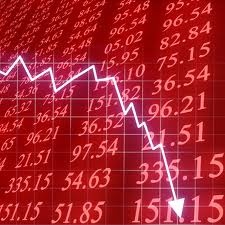
Blending images of Lady Gaga and Susan Boyle might fuse a picture of a "Desperate Housewife" escaping her cul-de-sac! Where are though the heroes transforming countries, even generations?
More is Less?
The world probably does not have less heroes today than generations past, but perhaps they are less visible in global communications where the means has overwhelmed the substance. From "Lady Gaga" to Susan Boyle, we have examples of acts of personal rocket ships to notoriety that some may less charitably refer to as diffusing or confusing personal celebrity with truly constructed heroes built through many storms and tests of architecture. And yet, we should not ignore the good works/causes that Lady Gaga has already championed or the millions that Susan Boyle has inspired with her perseverance and confidence born out of being humbled for a lifetime. Celebrity has in many instances been translated to UN Goodwill Ambassadors and champions of human rights. In the end though, if not for television and the ever more hungry media looking to gorge itself on personality focused stories, will we today find the heroes to transform countries, generations?
Flirting with Bigotry
Martin Luther King Junior did transform. It is apt that we celebrate his name and in that MLK became symbolic of the struggle of one people to free itself. Perhaps, as or more importantly he has become a symbol of an America reaching ever further to complete its own journey to what we claim this country is. It is not a road that was not known to us. From the outset of our Declaration of Independence, Thomas Jefferson wrestled with his own contradictions and in the words he crafted. Where the universal terms he so brilliantly employed to be arbitrarily cut down to satisfy economic self interest as well as convenient stereotypes? Abraham Lincoln was someone truly opposed to slavery, but as much for what it did to the country as a whole. Even after the Civil War and Emancipation Proclamation, America openly flirted with bigotry as official policy, from our continued abuse of the Native American and new waves of Asian laborers to the extended exploitation of the freed slave and the denial of vote to women.
In hindsight, it is very clear that we needed MLK after the Civil War and that Gandhi was as necessary after military victories over Hitler and fascism. Will we today though be able to recognize the leadership of new heroes?
Revolutionary to Despot
Most of the revolutionaries of the last century rode it out as some of its worst despots, from Stalin and Mau to Ramos and Saddam. (A few still linger in the current age, from Mugabe in Zimbabwe to Castro in Cuba.) One can argue that heroes die young by necessity, although individuals like Mandela and Muhammad Ali have aged very well into the role. Perhaps it is that then they could avoid the penetrating glare of countless cameras and scandal searching reporters, but JFK as well as MLK have not suffered as a consequence of revelations of presumed human indulgences, some more exercised than others, but critically not deterring from the mission. (Thomas Jefferson perhaps seems most critically judged for his contradictions while Bill Clinton has almost freed himself of association with his admitted frailties).
Where the heroes. Well, they are probably amongst us, but a little lost in the clutter and the wind-machines of publicity agents. They are probably even visible but too often judged by the dont's rather than what they do.
MLK Day is better than most to starting looking at the heroes and at ourselves. MLK was not old, 35, when he was accorded the Nobel Peace Prize, also revealing perhaps that he was more universally embraced in many societies overseas than in the US. We were not now and especially then so perceptive to see ahead nor so tolerant to be inclusive nor so peace-loving as to avoid only but the most just of war nor so wise to recognize our own contradictions. Hopefully, hypocrites we are not and always striving for consistency with what we would imagine ourselves to be.
"The New Negro"
MLK's appearance in "The New Negro" on the show "The Open Mind" is as worthy for gleaming reflections upon us. There are also only a few recordings left of where MLK had the opportunity to engage in a more thoughtful exchange with worthy counterparts. Back then, a half century earlier. he was shunned by many in the majority as disruptive, embraced by others as prophetic and hounded by some, (like the FBI's J. Edgar Hoover), as un-American.
See this Film Report at
www.diplomaticallyincorrect.org - "Martin Luther King/Where the Heroes"
by Ambassador Muhamed Sacirbey

